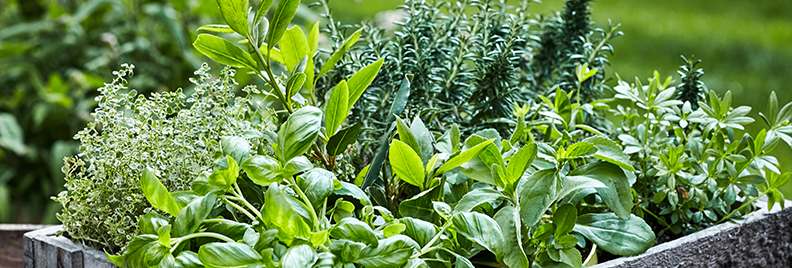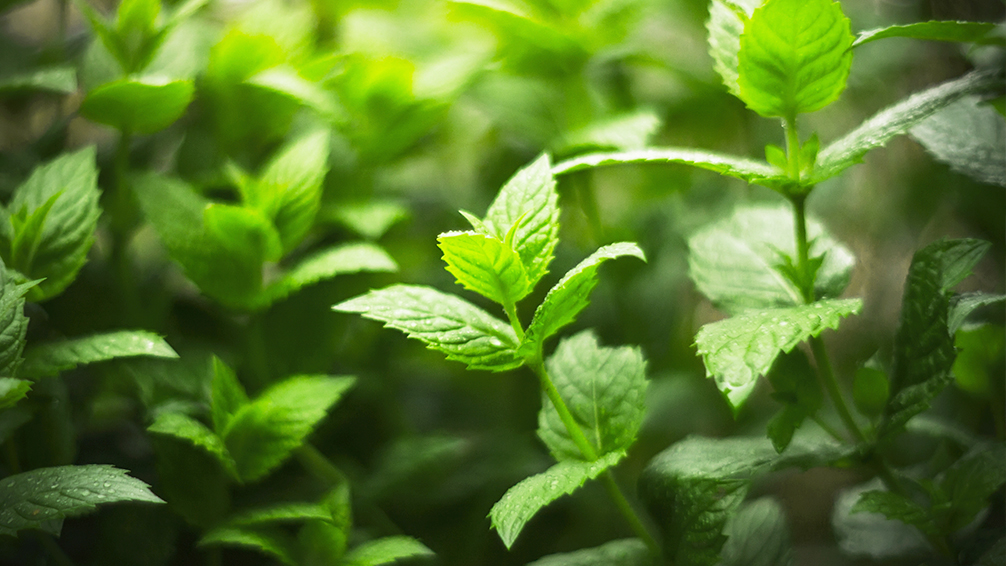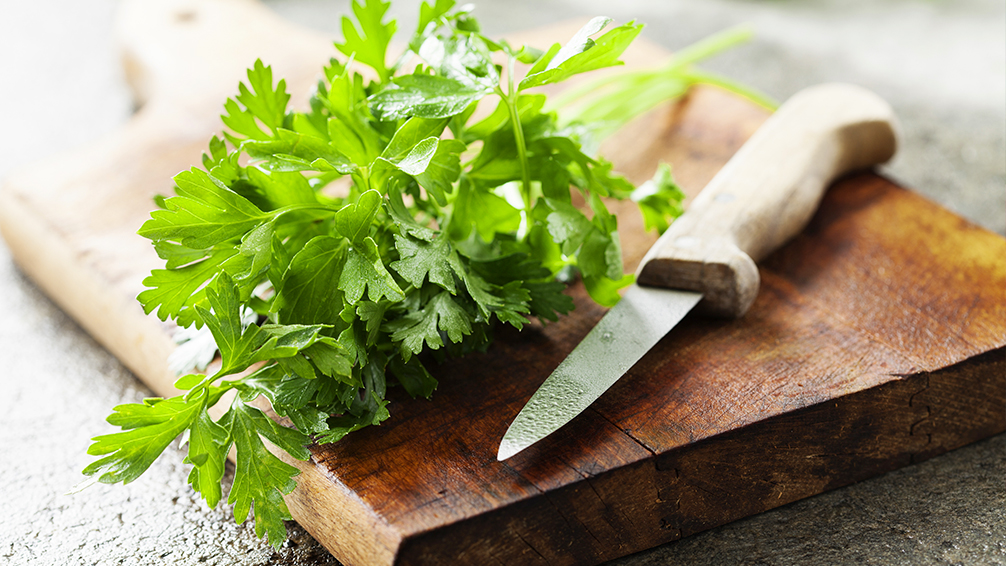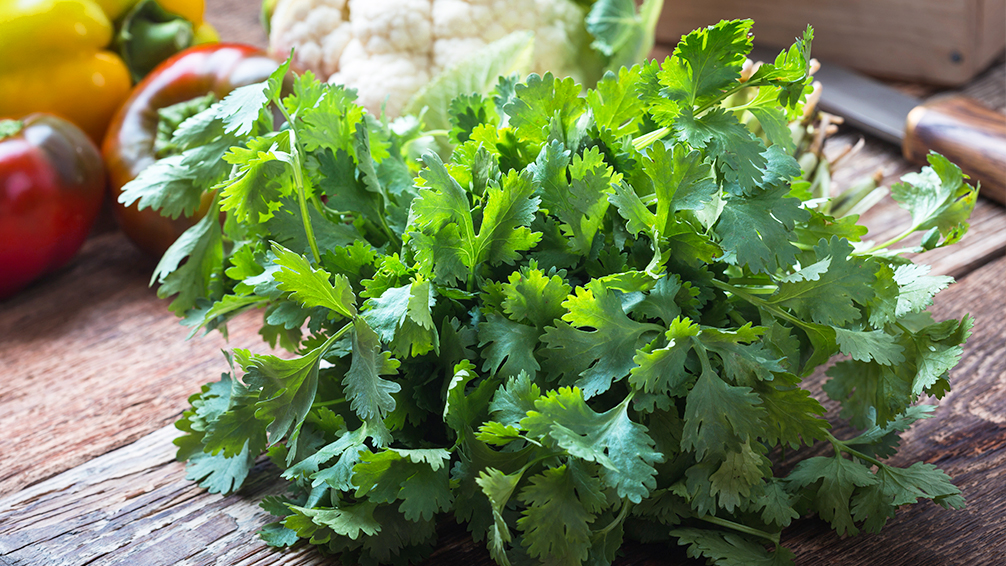
7 Delicious Herbs You Can Grow In The Shade
Hot gardening tip comin’ atcha: you can grow so many herbs in the shade! Those of you who live in basement apartments or have yards completely covered by tree canopies can still enjoy a totally decked-out herb garden. If you haven’t tried to grow your own herbs before, start now—it will change the way you cook!
Fresh garden herbs add so much flavor, aroma, and fanciness to your meals. A simple bowl of Kraft Dinner is nothing to write home about, but macaroni and cheese with a sprinkle of fresh chives and oregano? Step aside, Jamie Oliver, there’s a new sheriff in town.
There are plenty of shade-friendly herbs in Houston! If you want to start to grow your own unique blend of herbs n’ spices at home, but your property doesn’t have sunshine in high supply, check out these seven shade-tolerant herbs to grow at home:

Mint: There’s a lot to love about this ultra-fragrant leafy green. It grows super fast with little upkeep needed, so even if your previous gardening endeavors have been total fails, you’ve got a pretty good shot at success with mint. You can use mint in both savory and sweet dishes, and it’s delicious in smoothies, cocktails, and water infusions.
Since it grows so aggressively, lots of people like to keep it in containers to keep it from getting too out of hand. However, if you want a reliable, lush groundcover to fill in the bare gaps in your garden, mint is a great candidate—you’ll just have to harvest it regularly, so it doesn’t dominate the garden bed.
Thyme: Partial shade is a pretty comfortable environment for thyme, despite what some may say. While low sunlight may hinder the development of flowers, that’s really not the end of the world if you intend to use it for cooking. A windowsill with a bit of light trickling in or a spot under a more sparse tree canopy providing dappled sun will be just fine.
Thyme is pretty drought tolerant, too, so wait for the soil to dry out before watering. Harvest it regularly, leaving behind the thick, woody stems and clipping the fresh stems to use in your cooking. Regular harvesting like this will actually help your thyme to grow bigger and thicker, so frequently grazing on your plant is the best thing you can do for it.

Parsley: For some reason, everyone loves to rag on parsley and claim that it tastes like nothing, but it has a crisp, fresh flavor that complements a variety of milder dishes. Plus, you can toss it into a food processor to make different pestos or sauces like Argentinian chimichurri. While parsley still needs a little bit of sun to thrive, it can still grow in the shade reasonably well — you just need to trim it back regularly to keep it compact, as it tends to stretch out and get lanky.
Lemon Balm: This citrusy herb comes from the mint family, so naturally, it’s just as easy to grow and maintain. Not only is it delicious, but it has a long list of medicinal benefits! It soothes belly aches and cramps, eases mental fatigue and headaches, and can even help speed up the healing of cold sores. It tastes great if you dehydrate it and brew it into a hot, herbal tea.
Chives: A baked potato with cheese, bacon, and chives is probably one of the most satisfying comfort foods around. Use some fresh chives from your garden, and dinner guests will be mighty impressed. Its mild oniony garlic flavor tastes awesome in so many different dishes, so if you want to grow a herb that you can get plenty of use out of, this one’s a winner. While most garden herbs can be easily dehydrated and will develop a more potent flavor, chives are much better when used as soon as possible after picking, so rinse ’em and mince ’em, and you’re good to go.
Like thyme, chives won’t blossom as much when there isn’t a ton of sunlight, but they’ll still produce plenty of greenery, and you won’t lose out on flavor. If you want to grow them in containers, make sure that there are suitable drainage holes and the soil is nice and loamy so the roots don’t end up sitting in stagnant water.

Cilantro: Too much sun can totally derail your cilantro plants, causing them to flower (or bolt) instead of producing the tasty leaves and stems we rely on for punching up our tacos, guacamole, and salsa with extra flavor. Our hot climate is a bit much for cilantro, so it’s best if you grow them in a cooler spot or during the winter when the sun isn’t scorching.
You can easily grow them from seeds, and they’ll develop pretty fast, so if you’ve got kids who are curious to try their hand at gardening, growing cilantro is a fun and easy project for them. Little green leaves will start to poke up within a matter of days after seeding, so the kids won’t get tired of waiting around and abandon their project.
Oregano: Your pizzas, pasta, and parmigiana just wouldn’t be complete without a sprinkle of this quintessential Italian herb. Well-draining soil with a pH between 6.5–7 is ideal for oregano. This delicious diva doesn’t enjoy humidity or too much moisture, so make sure you don’t overwater it, and you put it in a spot with good air circulation. It tends to form a dense mat as it develops, so some folks like to use it as a garden groundcover, but most prefer to add it into herb planters and containers so they can move it around to different spots when needed.

Though your yard may be throwing some serious shade, you’ll get nothing but compliments over your fully stocked herb garden. Just think of all those fresh, fragrant herbs out there, living their best life without any need for intense sunlight! If you want to grow a herb garden at home but need help gathering all the necessary tools and supplies, don’t hesitate to visit us at Plants For All Seasons!
